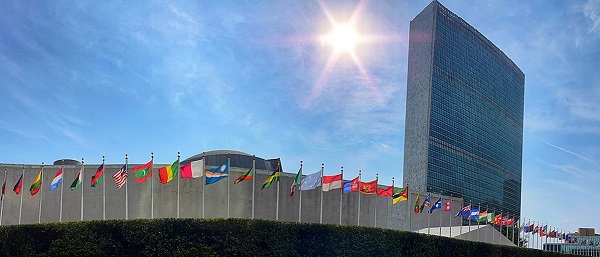Education
Teacher refuses to give up fight for free speech after being canceled for objecting to LGBT books

From LifeSiteNews
Ontario’s Divisional Court dismissed Carolyn Burjoski’s application for a judicial review of the January 2022 decision by school trustees to kick her off the board, but she will appeal the decision.
A now-retired Canadian teacher who was silenced for voicing concerns over LGBT books in school libraries vowed to continue to fight for her right to free speech after she was muzzled by her board.
Last year, longtime Waterloo Regional District School Board (WRDSB) teacher Carolyn Burjoski was stopped mid-presentation by then-board chairman Scott Piatkowski at a Board of Trustees meeting on January 17, 2022, because she was criticizing LGBT books in school libraries.
Piatkowski went as far as to expel Burjoski from the meeting. The next day she was made to work from home and told to keep her mouth shut under the threat of losing her retirement benefits. Piatkowski then told legacy media that Burjoski was “transphobic” and was using “hate speech” in the board meeting. Of note is that Piatkowski is a longtime supporter of the socialist NDP party.
Burjoski’s fight for justice began after she was removed from the board meeting because she exposed the dangers of LGBT books in school libraries. According to court documents, during her presentation, Burjoski revealed that some of the books made it “seem simple or even cool to take puberty blockers and opposite sex hormones.”
“I was ejected from a Board of Trustees meeting for criticizing the age appropriateness of sexual content in children’s books in elementary school libraries,” she said.
In May 2022, Burjoski filed a $1.7 million defamation suit against the WRDSB and Piatkowski that remains before the courts.
In June 2022, Burjoski applied for a judicial review of Piatkowski’s decision to suddenly stop her presentation, claiming it violated Ontario’s Human Rights code.
On November 29, three judges with Ontario’s Divisional Court dismissed Burjoski’s application for a judicial review of the January 2022 decision by her trustees to kick her off the board.
School board showed ‘display of authoritarian speech suppression in a public forum,’ says canceled teacher
Burjoski, in an update to social media last Thursday, said she would fight the dismissal of the judicial review with an appeal.
“I was silenced and removed for voicing my concerns about age-inappropriate content in some elementary school books. My respectful presentation was cut short by the chair who wrongly accused me of violating the Human Rights Code,” Burjoski said.
“This was not just a violation of my right to free expression, but a stark display of authoritarian speech suppression in a public forum where diverse viewpoints should be welcomed and discussed.”
Burjoski said that her judicial review being dismissed “is deeply concerning” and could set a “troubling precedent for free expression in Canada, empowering school boards and other public bodies to silence and censure every voice they disagree with.”
“So today, I am escalating this matter to the Ontario Court of Appeal by filing a notice of motion for leave to appeal. This is not just about a school board meeting. It’s about the integrity of open dialog on important issues in our educational system and other public forums.”
Burjoski noted how a true democracy “thrives on diverse opinions and the freedom to express them.”
“It’s vital that our judicial system protect our charter rights against administrative overreach that stifles our free speech,” she noted.
“I am fully committed to this cause and am deeply grateful to the Justice Center for Constitutional Freedoms for sponsoring this appeal pro bono.”
She encouraged “everyone” to support JCCF financially in its “relentless work to safeguard Canadian freedoms.”
Burjoski suffered a breakdown from the entire ordeal, which was so bad that she had to be taken to the hospital by ambulance. She said she is “still in recovery from this trauma.”
She has documented her ordeal on her website cancelledteacher.com.
Yesterday, LifeSiteNews reported that the WRDSB recently decided to get rid of the word “parent” on a slew of official documents and replace it with “caregiver” or “family.” Not all WRDSB members were on board with the change, however.
Alberta
Diploma Exams Affected: No school Monday as ATA rejects offer of enhanced mediation

Premier Danielle Smith, Minister of Finance Nate Horner, and Minister of Education Demetrios Nicolaides issued the following statement.
“Yesterday, the Provincial Bargaining and Compensation Office wrote to the Alberta Teachers’ Association (ATA) and formally requested an agreement to enter an enhanced mediation process.
“This process would have ensured that students returned to the classrooms on Monday, and that teachers returned to work.
“Negotiating would have continued with the ATA, Teachers’ Employer Bargaining Association (TEBA) and a third-party mediator to propose a recommended agreement.
“We are very disappointed that the Alberta Teachers’ Association refused this offer. Teachers and students should also be disappointed.
“PBCO made this offer to the ATA because the union has not made a reasonable offer and this strike is impacting students. Alberta’s government is trying to put kids first and bring an end to this strike.
“The offer of enhanced mediation provided a clear path to ending it.
“We want the same things as the ATA: More teachers. More pay for teachers. More educational assistants. And more classrooms.
“This strike has gone on too long and we are extremely concerned about the impact it is having on students.
“We are willing to consider further options to ensure that our next generation gets the world-class education they deserve. After about three weeks, a strike of this nature would reach the threshold of causing irreparable harm to our students’ education.
“The ATA needs to do what is right for its members, and for all Alberta students.
“If it refuses to do so, we will consider further options to bring this strike to an end.”
Diploma exam update
November diploma exams will be optional for students.
With instructional time in schools disrupted due to the teacher strike, the November 2025 diploma exams will now be optional for students. Students who wish to write a diploma exam may request to do so, and their school boards will accommodate the request.
The optional diploma exams apply to all schools provincewide. These exams will still take place on the currently scheduled dates.
Students who choose not to write the November diploma exams can still complete their courses and graduate on time. Their final grade will be based entirely on the school-awarded mark provided by their teacher.
Choosing not to write the November diploma exams will not affect a student’s ability to apply to, be accepted by, or attend post-secondary institutions after graduation.
No changes have been made to the January and June diplomas and provincial achievement tests.
Quick facts
- Students are automatically exempted from writing the November diploma exams but can request to write them.
- School boards must allow the student to write the diploma exam if requested.
Alberta
Premier Smith addresses the most important issue facing Alberta teachers: Classroom Complexity

Premier Danielle Smith is posting this response to a media question about Classroom Complexity.
While Albertans are hearing a lot about capping class sizes, Premier Smith says it might be a much better idea to talk about capping “complexity”.
The challenges teachers face in today’s classrooms are recognized, and work continues toward practical solutions that address their concerns.
Achieving a fair and reasonable agreement that best supports students remains a top priority. pic.twitter.com/o4UCt7sDoU
— Danielle Smith (@ABDanielleSmith) October 16, 2025
-

 Alberta14 hours ago
Alberta14 hours agoClick here to help choose Alberta’s new licence plate design
-

 National15 hours ago
National15 hours agoDemocracy Watch Renews Push for Independent Prosecutor in SNC-Lavalin Case
-

 International2 days ago
International2 days agoPoland’s president signs new zero income tax law for parents with two children
-

 Business16 hours ago
Business16 hours agoOver two thirds of Canadians say Ottawa should reduce size of federal bureaucracy
-

 Business1 day ago
Business1 day agoTrump Admin Blows Up UN ‘Global Green New Scam’ Tax Push, Forcing Pullback
-

 Automotive2 days ago
Automotive2 days ago$15 Billion, Zero Assurances: Stellantis Abandons Brampton as Trudeau-Era Green Deal Collapses
-

 Business1 day ago
Business1 day agoTrump Blocks UN’s Back Door Carbon Tax
-

 National2 days ago
National2 days agoPoilievre accuses Canada’s top police force of ‘covering up’ alleged Trudeau crimes





